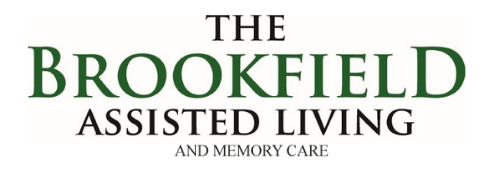Long-Term Care for Veteran Spouses
Long-Term Care for Veteran Spouses
The cost of long-term care for seniors can be high, but certain veteran benefits can help to offset these costs. The US Department of Veteran Affairs offers benefits like disability compensation, VA pension, or long-term care assistance based on specific requirements. Veterans whose income exceeds the legal limit for a VA pension may also be eligible for the Aid and Attendance benefit if they have significant medical expenses that are not reimbursed.
There are also VA housebound benefits for Veterans and their surviving spouses who spend their day primarily at home because of a major disability and need help while going out for medical appointments or medically necessary treatments.
Sadly, many veterans are unaware of the benefits available to them and end up paying more for their care than they should. The
VA Survivors Pension provides monthly payments to qualified surviving spouses and unmarried dependent children of wartime Veterans who meet certain income and net worth limits established by Congress.
Keep reading to know more about the benefits and facilities for veteran spouses.
Eligibility Criteria
VA benefits are available for veteran spouses if any of these three conditions are met:
- The veteran has served at least 90 days with at least one day during a wartime period.
- The veteran started active duty after September 7, 1980 and has served at least 24 months of active duty with at least one day during a wartime period.
- The veteran started active duty after October 16, 1981 and was an officer.
You might not be eligible for this benefit if you have remarried after the veteran’s death. Additionally, your
net worth cannot be more than $138,489 to qualify for Veterans Pension benefits—this will increase each year to adjust for the rise in the cost of living. The net worth includes your and your spouse’s total assets and annual income. When you apply for VA benefits, you need to submit a report of your total assets and income.
Assets and Annual Income
Assets are the total market value of your real properties and personal properties. Real property can be your assets like land and buildings, and personal property can be your investments in stocks or bonds as well as furniture or boats after deducting any current mortgages. Your assets don’t include your primary residence, car, or any appliances you own.
Your income is the money you earn from a job or through retirement benefits and includes bonuses, commissions, and tips. You can deduct educational expenses and medical expenses from your income. Medical expenses include Medicare, Medigap, and long-term care insurance premiums; over-the-counter medications taken on a doctor's recommendation; long-term care costs, such as nursing home fees; the cost of an in-home attendant who provides some medical or nursing services; and the cost of an assisted living facility.
The Three-Year Look-Back Period
Applicants must disclose all financial transactions in the three years preceding the application to ensure that the veteran has not transferred any assets to qualify for the benefits. A penalty period of five years can apply to applicants who transfer assets within three years of applying for benefits to reduce their net worth. You will not be eligible for any VA benefits during the penalty period.
For veterans with one dependent who needs aid and attendance, the VA will calculate a penalty period in months based on the amount transferred that would have put them over the net worth limit and the
maximum annual pension rate (MAPR).
Clinical Requirements
If you are a surviving spouse of a veteran, you may be eligible for Aid and Attendance benefits if you need a caregiver for personal care activities like bathing and dressing, need to spend the majority of your day in bed, live in a nursing home due to physical or mental disability, or have limited eyesight.
Benefit Amount
The benefit amount paid out is calculated based on your income and the MAPR set by Congress. The MAPR depends on the number of dependents, whether you qualify for Housebound or Aid and Attendance benefits, and the total cost of senior care per month. VA benefits are deposited directly into the surviving spouse's bank account each month. If you do not have a bank account but would like to receive your pay via direct deposit, there are veteran-friendly banks and credit unions that can help you qualify for or set up an account.
Where to Apply for VA Benefits
You can apply for veterans benefits on the VA website. Create an account, gather the necessary information and documents for the application, and save the work. Please make sure to maintain photocopies of any original documents.
You can also apply in person at a
VA facility near you or mail the Application for Pension form to the VA's Pension Management Center. It is critical to apply before your living needs become crucial. The process can take months, which is sometimes too long in the lives of seniors who require immediate decisions and financing.
VA benefits provide financial assistance to widowed spouses of veterans in senior living facilities to pay for assisted living, memory care, home care, or nursing home care. Aid and Attendance and Housebound benefits can both be used to pay for personal care provided by a non-licensed in-home career, such as a friend or family member.
If you need more information on VA benefits and details about how to apply for one, contact us at Brookfield Senior Living and Memory Care. We offer a peaceful, comfortable, and secure community and provide professional care with a thorough understanding of the challenges of aging. Learn more about the Brookfield Senior Living and Memory Care unit at Bella Vista and set up a tour today!
QUESTIONS? CONTACT US.
The philosophy of assisted living emphasizes personal autonomy and privacy. Our facilities emphasize independence, homelike settings, and the ability to age in place. Our communities are designated as Level I or Level II Assisted Living.
Choosing the right place to live can be difficult. If you are still unsure of which place is right for you, just give us a call at your preferred location and we can talk about it over the phone.
For media inquiries, please email: marketing@brookfieldseniors.com
All Rights Reserved | Brookfield Assisted Living and Memory Care


